Intel Core i3-2120 3.3GHz Sandy Bridge Processor Review
Sisoft Sandra 2011 SP3
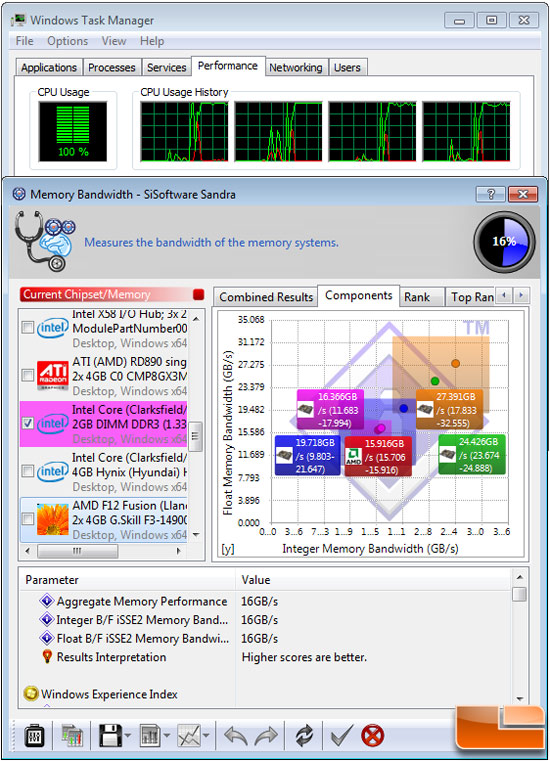
The Sisoft Sandra 2011 SP3 benchmark utility just came out a few weeks
ago and we have started to include it in our benchmarking. Sandra 2011 comes with
support for Virtualisation (Virtual PC/Server, Hyper-V, VMware) and
GPGPU (OpenCL, DirectX 11 DirectCompute), but today we will be using the
program to look at memory and CPU performance!
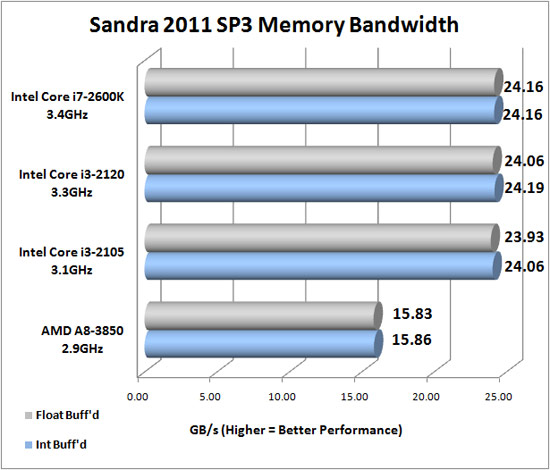
Results: Both test systems used the identical G.Skill Ripjaws X Series 8GB (2 x 4GB) memory kit that ran at 1866MHz with 9-10-9-28 1T timings. While the memory kit and settings were identical the memory performance was nearly identical on the Intel Z68 platform as it appears that the number of cores and the clock frequency of the CPU don’t play a major roll in memory throughput these days as we were hitting 24GB/s on ‘Sandy Bridge’ processors by Intel.
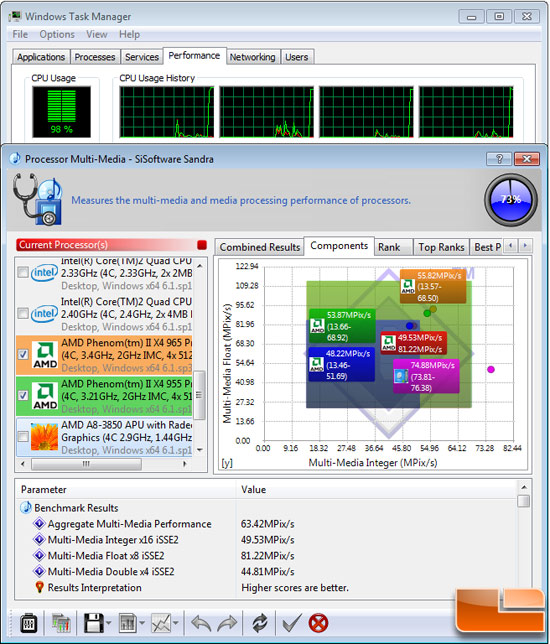
The Sandra Processor Multi-Media benchmark has been a long time
favorite of ours to look at floating point performance on processors.
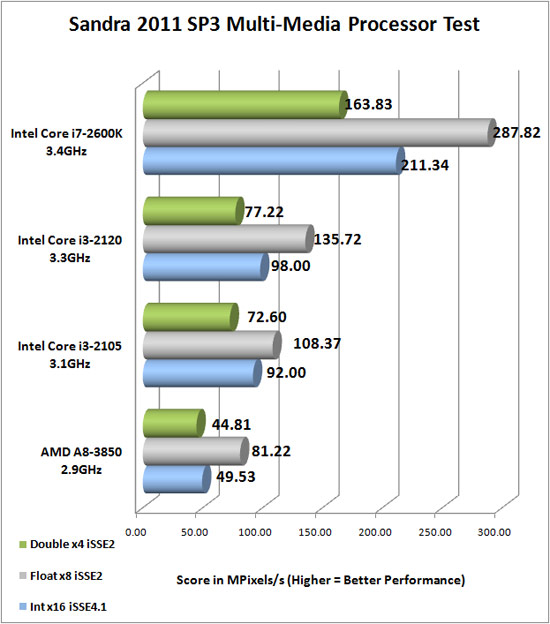
Results:
The Intel Core i3-2120 was slightly faster than the Core i3-2105 processor in the multi-media processor benchmark thanks to the processors 200MHz faster core clock frequency. The AMD A8-3850 ‘Llano’ processor is a quad core processor, but doesn’t have enough clock frequency to compete with the Core i3-2120, which is a dual-core processor with Hyper Threading.
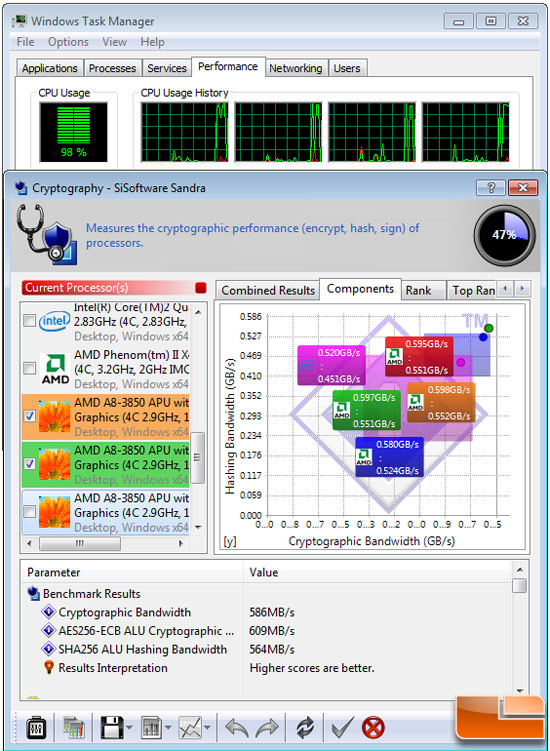
Cryptography has become an important part of our digital life: it
allows us to conduct safe transactions online, certify programs and
services, keep our data secure and much more. Sandra 2011 SP3 has a
dedicated benchmark built-in that measures cryptographic performance,
which is important on the new Intel processors that support features like AES-NI!
Intel AES-NI is a new set of Single Instruction Multiple Data (SIMD)
instructions that are going to be introduced in the next generation of
Intel processors, as of 2009. These instructions enable fast and secure
data encryption and decryption, using the Advanced Encryption Standard
(AES), defined by FIPS Publication number 197. The architecture
introduces six instructions that offer full hardware support for AES.
Four of them support high performance data encryption and decryption,
and the other two instructions support the AES key expansion procedure.
Let’s take a look at how this feature impacts Cryptography performance.
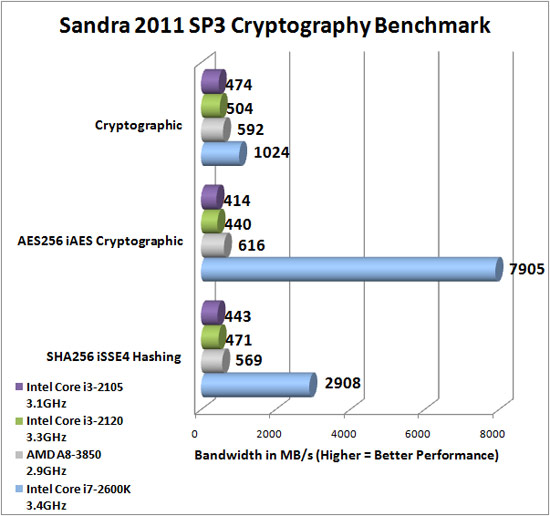
Results: The entry level Intel Core i3 series of processors do not support AES-NI and neither does the AMD A-Series of APUs, so the Cryptographic Bandwidth isn’t a strong point of these processors. The Intel Core i7-2600k does support the instruction set and as you can see the performance is at a whole new level, but remember the Core i7-2600K costs $314.99 and the Core i3-2120 costs $144.99!

Comments are closed.